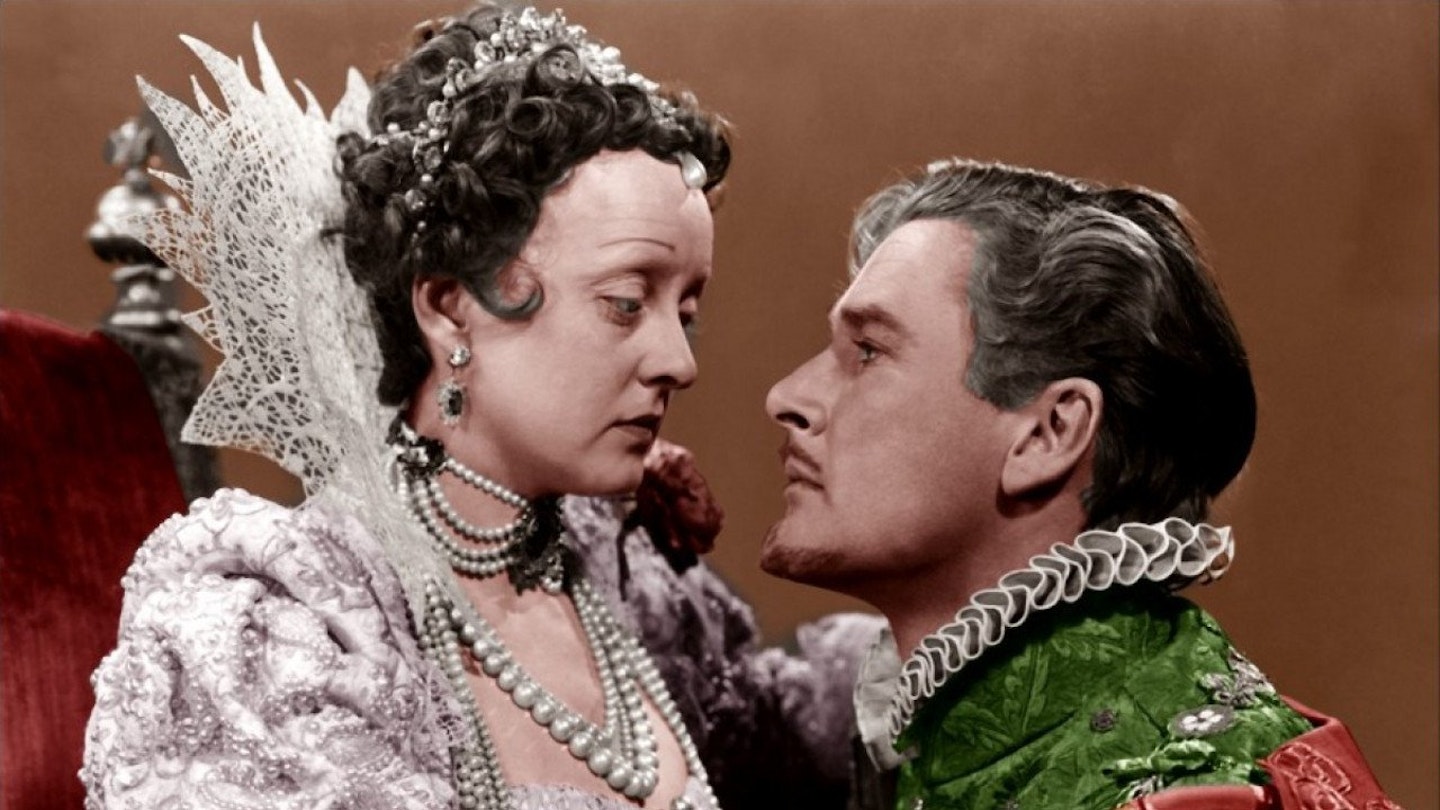Maxwell Anderson's play, Elizabeth the Queen, was written in blank verse that was deemed the epitome of cultured sophistication when delivered by those Broadway icons, Alfred Lunt and Lynn Fontanne. Always something of a snob, who considered herself several cuts above the lowbrow entertainment that Warners foistered upon her, Bette Davis reckoned this was the perfect vehicle for herself and Laurence Olivier and was, unsurprisingly, furious when Jack Warner insisted on teaming her with Errol Flynn, instead.
Davis deeply resented the fact that while she earned the studio kudos with her string of Oscar-nominated performances, Flynn's crowdpleasing knack of keeping the coffers filled made him the toast of the front office. However, Flynn was no better disposed towards Davis, especially as she seemed intent on acting him off the screen. Consequently, he demanded that the picture became known as The Knight And The Lady to reflect his commercial clout and it was only the hasty adoption of a compromise title that prevented Davis from quitting the project.
Caught in the middle of this battle of the egos was Olivia de Havilland, who was herself frustrated at having to play third fiddle after just completing her stint on Gone With the Wind. As a result, her indifference clashed with the scenery-gnawing antics of her co-stars and the atypical over-eagerness of such usually dependable character players as Henry Daniell and Henry Stephenson.
Clearly Michael Curtiz was ill at ease with an assignment that offered him little scope for action and his direction was as ponderous as Erich Korngold's score. However, he made the most of Orry-Kelly's opulent costumes and Anton Grot's deftly designed sets, whose contrasts between the oppressive décor of the court and the inviting intimacy of Wanstead were captured in artful Technicolor by his fellow Oscar nominee, Sol Polito.
Despite her unhappy experiences behind the scenes (which were far more dramatic than anything that appeared on camera), Davis enjoyed the imperious passion of the role and she played Elizabeth again in The Virgin Queen in 1955.
